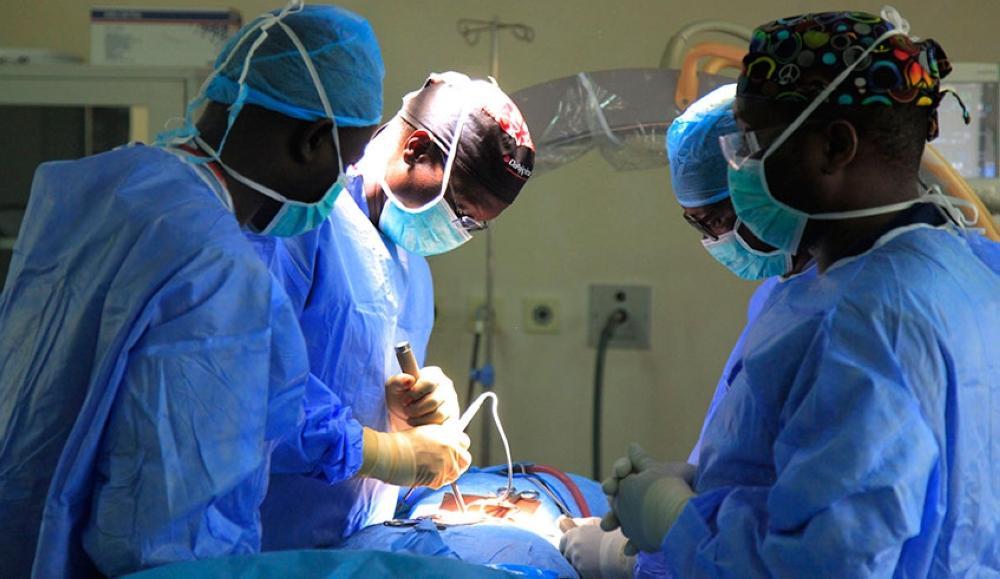Africa-Press – Rwanda. Healthcare professionals in Rwanda will be required to have medical professional liability insurance once the newly passed healthcare services law takes effect.
The law aims to advance the country’s health sector and address long-standing gaps in patient protection.
Approved on August 4, it replaces three outdated and fragmented pieces of legislation. One of its most notable provisions mandates liability insurance for all healthcare providers, including doctors, nurses, and medical institutions.
Medical liability insurance provides coverage for healthcare professionals and institutions against financial losses that may result from claims of negligence, errors, or omissions in the course of treating patients.
Dr Ruzindana, a consultant obstetrician and gynecologist at CHUK.
In an interview with The New Times, Dr. Kenneth Ruzindana, a senior consultant obstetrician and gynecologic oncologist at Kigali University Teaching Hospital (CHUK), said the reform offers important protections for both patients and practitioners.
“As a medical practitioner, this law enhances our protection by offering financial and legal safeguards we previously lacked,” he said, explaining that under the previous system, doctors often had to pay out of their own pockets.
The law clarifies accountability by defining whether the healthcare professional or the institution is responsible and how compensation should be allocated when needed. This can reassure patients, as formal compensation mechanisms help build confidence in the healthcare system and reduce conflicts.
However, he noted that it comes with challenges, particularly the cost of premiums. He explained that insurance adds a financial burden on healthcare providers, whose salaries are constrained.
He pointed out that its rollout will require clear regulations and careful supervision.
On doctor-patient trust, he said, the law could have both positive and negative effects. It may increase confidence, but there is also a risk of more suspicion if it is not implemented carefully.
“Without proper public education, this provision could raise suspicion. Some patients might see malpractice insurance as evidence that mistakes are common, and if they focus on the legal aspect, they may be quicker to consider legal action, which can make consultations feel more confrontational,” he noted.
For More News And Analysis About Rwanda Follow Africa-Press






